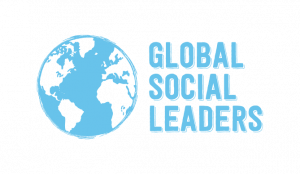We are delighted to share a blog written by Tresen Ernemann, a student at Sotogrande International School who is part of a team delivering a Global Goals project for the 2019-20 Global Goals Competition.
Their project is among over 957 social action projects currently running as part of the GSL movement and we are excited to be supporting them to design and lead positive social change in their community.
Through working with Global Social Leaders, we are learning more about each other, and are realising that we can achieve more and have a larger impact by spreading the word and involving more people.
Project Overview
Sotogrande International School is notorious among students and staff to have a big food waste problem. As M5 students eating at the cantina on a daily basis, the GCP group identified this as a huge problem in our community that needed to be solved. We began to ask ourselves how we could find a way to sustainably solve this problem under the context of a GSL project.
Using the tools GSL gave us, we were able to identify some important factors to take into account when trying to reduce waste in our community: Education, Sustainability, Life/Health, Responsibility, Teamwork. We came together after much deliberation with a solid plan to infinitely reduce food waste, not only in our school but across schools in our community and even worldwide.
The SIS GCP team has been raising “Californian” worms that compost our food and are capable of turning it into fertilizer. We use that fertilizer to fuel our permaculture garden and lower our use of store-bought, packaged foods. In order to make sure this initiative is not a secret to our community, we are working extra hard on using various tools to educate our community on how they can reduce food waste at home, work and school as well.
Our Journey
After some extensive research, we worked as a team to coordinate activities around the school aimed to meet our project goals.
Started a worm farm
Worked on the permaculture garden and planting
Experimented with lettuce to test the liquid fertilizer
We learnt that it takes a lot of time for the worms to breakdown the food waste from the cantina. We found out that the worms can consume 200 kg of food waste in any given two week period.
We realised that we would need approximately 40 more worms in order to cope with the current amount of waste. Therefore our focus diverted back to the education of our school community in order to reduce the overall amount of food waste. We have now prepared a “Clean Plate Challenge” for our school community as part of our education campaign. We have also developed a lesson to take to our primary classrooms about the importance of not wasting food. This way we can educate our community from a young age in the hope that the earlier we learn, the less food we will waste in our lifetime.
The Next Chapter
Our next steps are to visit the primary classrooms with the prepared lesson plan. We are also meeting again with our school nutritionist and cantina manager again tomorrow. We have prepared a survey to send out to our school community to involve others in our work and gather ideas that will be beneficial to bring about positive change. Over the coming months, we aim to launch and promote our “Clean Plate Challenge. “ continue to nurture our worm farm and further educate our community. We also plan on taking more photographs and video footage so that we can prepare our final report and digital submission evidence for the competition.
The 2019-20 GSL Global Goals Competition is now open and runs until June 2020. If you belong to one of the 700+ teams of students currently delivering a social action project as part of the competition we would love to hear from you and feature your blog and project photos on our website to inspire others.





